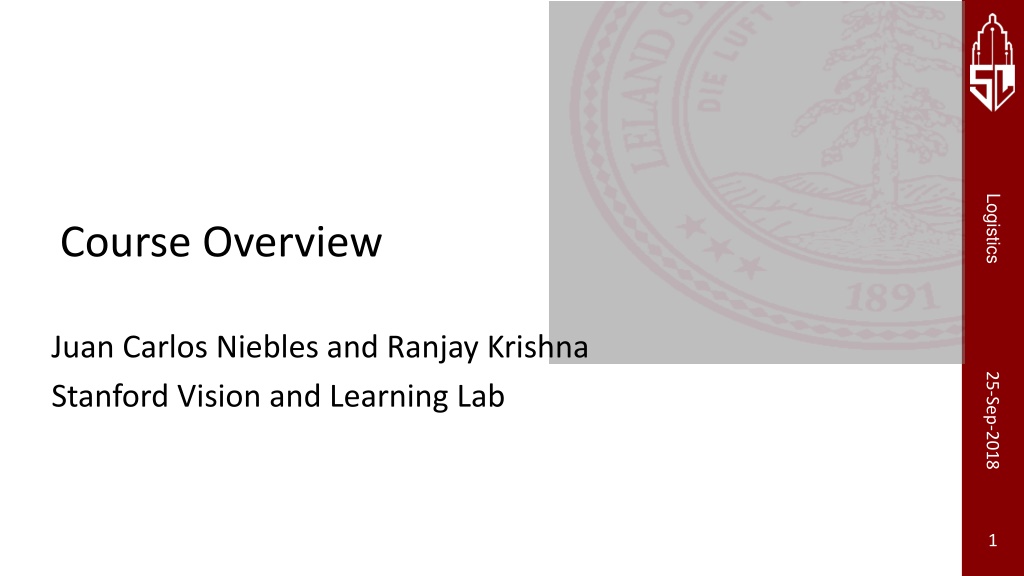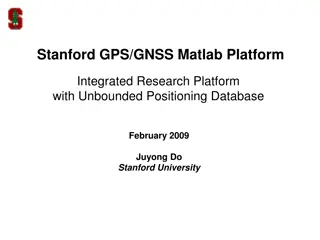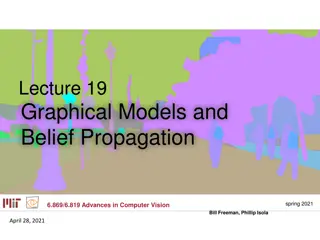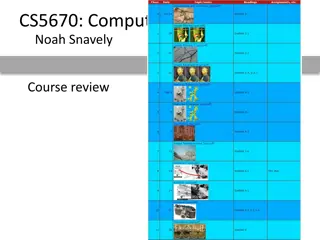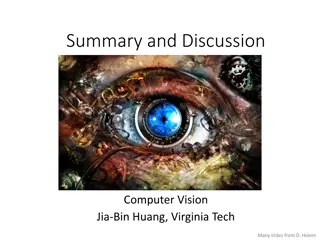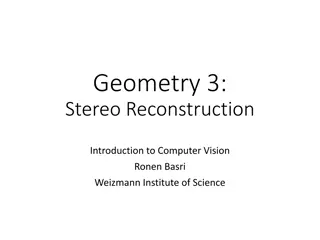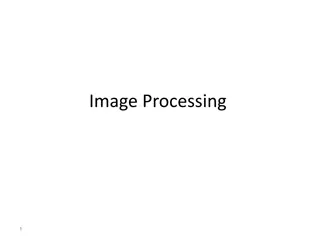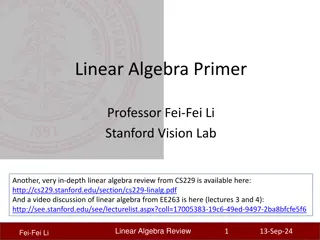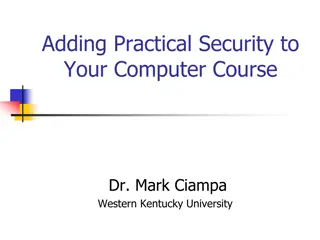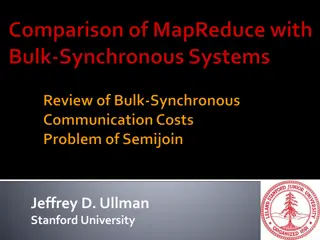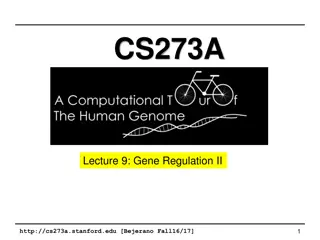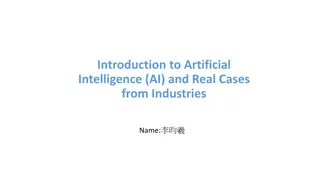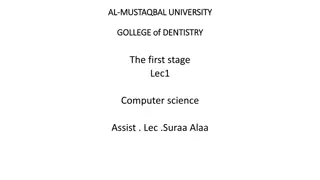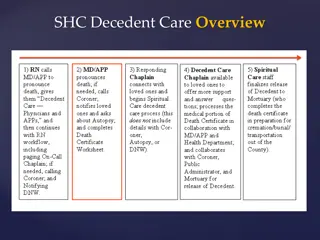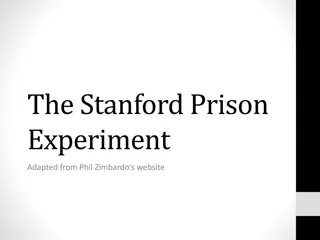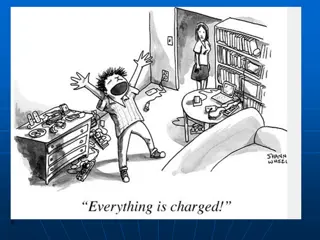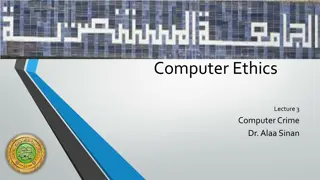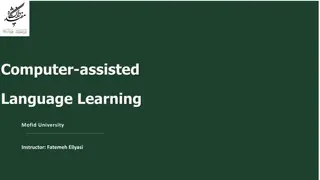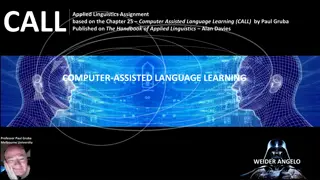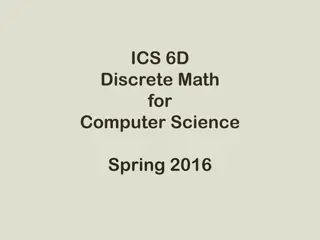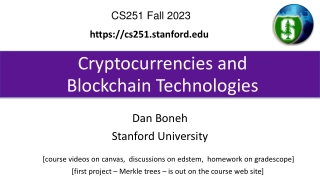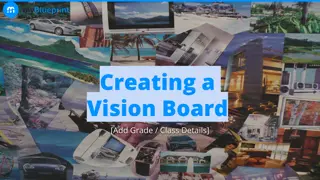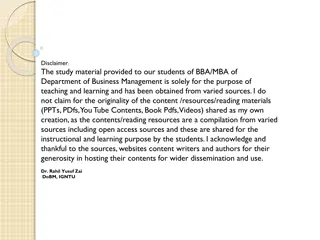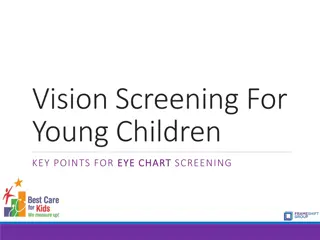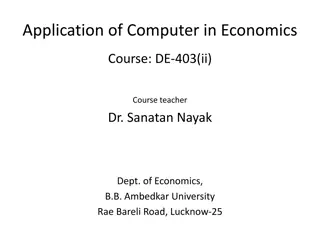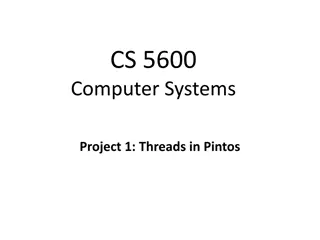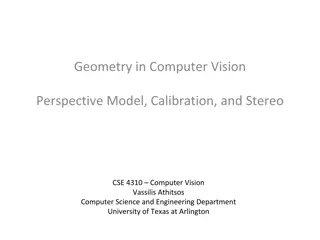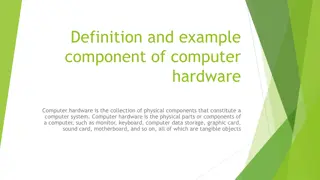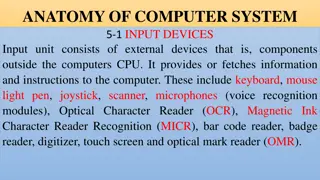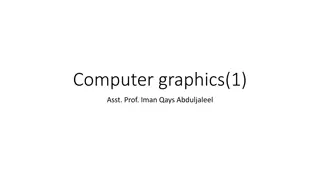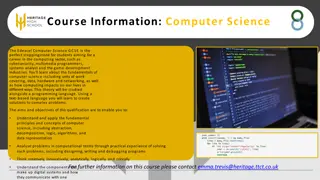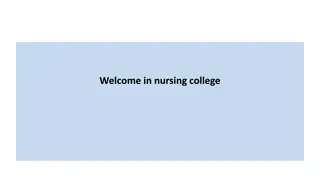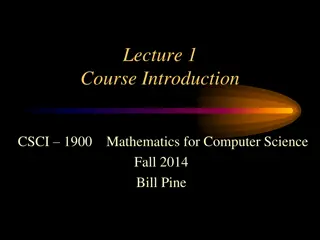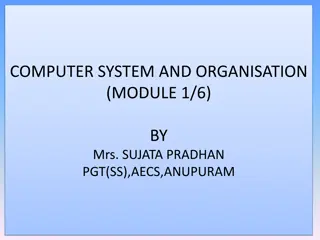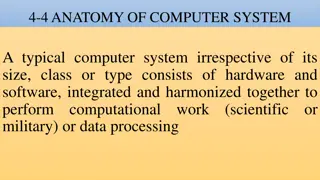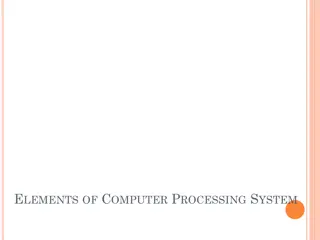Computer Vision Course Overview at Stanford University
Explore the logistics of the Computer Vision course at Stanford University presented by Juan Carlos Niebles and Ranjay Krishna from the Stanford Vision and Learning Lab. The overview covers the course agenda, instructor details, office hours, contacting TAs, syllabus, grading policy, and the overall philosophy of the course. Gain insights into the breadth and depth of computer vision as a field, emphasizing the importance of practical coding skills and theoretical understanding.
Uploaded on Oct 04, 2024 | 0 Views
Download Presentation

Please find below an Image/Link to download the presentation.
The content on the website is provided AS IS for your information and personal use only. It may not be sold, licensed, or shared on other websites without obtaining consent from the author. Download presentation by click this link. If you encounter any issues during the download, it is possible that the publisher has removed the file from their server.
E N D
Presentation Transcript
Logistics Course Overview Juan Carlos Niebles and Ranjay Krishna Stanford Vision and Learning Lab 25-Sep-2018 1 Stanford University
Todays agenda Introduction to computer vision Course overview Logistics 25-Sep-2018 2 Stanford University
Contacting instructor and TAs Instructors: Juan Carlos Niebles Ranjay Krishna Logistics Teaching Assistants Sho Arora Shubhang Desai TBD 25-Sep-2018 3 Stanford University
Office hours Juan Carlos Niebles: Fridays 11am - 12pm @ Gates 249 Ranjay Krishna: By appointment until TBD. Logistics Sho Arora: TBD David Rey Morales: Mondays 4pm - 6pm, Fridays 3pm - 4pm Shubhang Desai: TBD 25-Sep-2018 4 Stanford University
Contacting instructor and TAs All announcements, Q&A in Piazza https://piazza.com/stanford/fall2018/cs131/home All course related posts should be public. All private correspondences to course staff should post private (instructors only) post on piazza. Use this for personal problems and not for course related material. Logistics 25-Sep-2018 5 Stanford University
Overall philosophy Breadth Computer vision is a huge field It can impact every aspect of life and society It will drive the next information and AI revolution Pixels are everywhere in our lives and cyber space CS131 is meant as an introductory course, we will not cover all topics of CV Lectures are mixture of detailed techniques and high level ideas Speak our language Depth Computer vision is a highly technical field, i.e. know your math! Master bread-and-butter techniques: face recognition, corners, lines, features, optical flows, clustering and segmentation Programming assignments: be a good coder AND a good writer Theoretical problem sets: know your math! Final Exam: your chance to shine! Logistics 25-Sep-2018 6 Stanford University
Syllabus Go to website http://cs131.stanford.edu Logistics 25-Sep-2018 7 Stanford University
Grading policy - homeworks Homework 0 (Basics): 3% Homework 1 (Filters - instagram): 9% Homework 2 (Edges smart car lane detection): 9% Homework 3 (Panorama - image stitching): 9% Homework 4 (Resizing - seams carving): 9% Homework 5 (Segmentation - clustering): 9% Homework 6 (Recognition - classification): 9% Homework 7 (Face detection - Snapchat): 9% Homework 8 (Tracking - Optical flow): 9% Logistics 25-Sep-2018 All homeworks due on Monday at midnight 8 Stanford University
Grading policy Final Exam: 20% Class Notes: 5% Logistics Up to Extra Credit: 10% 25-Sep-2018 9 Stanford University
Grading policy - homeworks Most assignments will have an extra credit worth 1% of your total grade. Logistics Late policy 7 free late days use them in your ways Maximum of 3 late days per assignment Afterwards, 25% off per day late Not accepted after 3 late days per assignment 25-Sep-2018 Collaboration policy Read the student code book, understand what is collaboration and what is academic infraction 10 Stanford University
Submitting homeworks Homeworks will consist of python files with code and ipython notebooks. Ipython notebooks: Will guide you through the assignments. Might contain written questions Once you are done, convert the ipython notebook into a pdf and submit on Gradescope (https://www.gradescope.com/courses/24953). Access code: 9XVR52 Logistics Python files: All code must be submitted via submission script included in every assignment. Check our course website for details on submissions. 25-Sep-2018 HW0 and HW1 is live, you can start working on it immediately. We will try and get all the assignments out to you as soon as they are ready. 11 Stanford University
Final exams Will contain written questions from the concept covered in class or any questions in the homeworks. Logistics Can require you to solve technical math problems. 25-Sep-2018 Will contain a lot of multiple choice and true-false questions. We will release a practice final towards the end of the quarter. 12 Stanford University
Class notes We, as a class, will generate study notes for everyone. 5% of your grade Sign up to create notes for a lecture here: https://github.com/StanfordVL/CS131_notes All notes will be due within 1 week of the start of the class. Ex, notes for Tuesday will be due the next Tuesday before class starts. All notes will be in Latex. This is a group effort: Work together with your teammates to create the notes!! Logistics 25-Sep-2018 13 Stanford University
Logistics Let s sign up for class notes 25-Sep-2018 14 Stanford University
Welcome to CS131 Let s have a fun quarter! Logistics 25-Sep-2018 15 Stanford University
